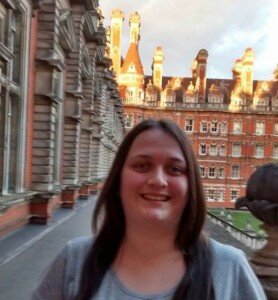With the 2015 General Election fast approaching, here at the Crick Centre we are thinking about what different strategies political parties are using to engage the public in politics. In this post, Ellen Watts, a PhD researcher at the New Political Communication Unit at Royal Holloway, looks at how the concept of celebrity is going to be utilised. She argues that we need a deeper analysis of the importance of celebrities at election time, as they are much more than just a useful endorsement.
With the election fast approaching, speculation is growing over which celebrities will be pledging their support to political parties. This isn’t surprising, as there were plenty of celebrity faces to be seen in party political broadcasts and on the campaign trail in 2010, and events stateside have associated celebrity with getting out the vote.
But this isn’t America, and even if we had a celebrity as broadly popular and integrated into so many aspects of people’s lives as Oprah Winfrey, I’m not sure they’d want to get behind one of our political parties. The story so far seems to be mainly one of reluctance, of celebrities telling us who they’re not backing and Ed Miliband, in the case of Ant and Dec, vowing to win them back.
It’s easy to see why he values celebrity endorsements. Politics has become more personalised, but most party leaders are struggling to appear personable. Making connections to popular culture could be a route to appearing more authentic for those whose elite background, or lack of experience outside of party politics, doesn’t provide an instantly relatable backstory. In a fragmented media environment, celebrity support may also help to reach people who don’t seek out political information at election time.

By Matt Deegan (http://www.flickr.com/photos/msdi/7202339874/) [CC BY 2.0], via Wikimedia Commons
But celebrity endorsements are not an automatic route to political engagement. Most of the celebrity supporters listed by the Conservatives in 2010 were fairly uninspiring, especially to younger potential voters. Labour and the Liberal Democrats did better, but the efforts of former Lib Dem endorsers, such as Colin Firth and Daniel Radcliffe, to distance themselves from the party since may explain some of the reluctance of celebrities to nail their colours to the mast this time around.
One of the Conservatives most successful endorsers from 2010, Gary Barlow, demonstrates another issue with celebrity endorsement: celebrities can be unpredictable. This endorsement brought awkward questions for Cameron later, when it was revealed that Barlow had invested millions in tax avoidance schemes. Cameron refused to give him the same public condemnation received by comedian Jimmy Carr, and Barlow insists that his fans aren’t interested in his tax affairs, but it remains to be seen how close to him Cameron will want to get in the upcoming campaign.
Celebrity endorsements can be valuable, but they should not be seen as a silver bullet to success. Whilst celebrities publically took sides in the run up to last year’s Scottish independence referendum, the high turnout is more likely attributable to a sense of genuine choice than celebrity involvement.
As we get closer to election day I will be interested to see which celebrities endorse parties, but celebrity is going to be integral to the mediation of the campaign with or without such official declarations. Celebrity comments on political leaders and issues now frequently become talking points. For journalists, celebrity comments become a way for them to reinforce their view; The Sun recently used Ant and Dec’s publically shared doubts about Ed Miliband to express their (much stronger) criticisms. Off the cuff comments on political issues frequently lead to people expressing their (dis)agreement on Twitter. In both cases, politicians often feel compelled to respond to the celebrity-driven story, and with the heightened political coverage that comes with an election, we may see this occurring even more frequently.
The uncertainty of the upcoming election makes one thing certain; politicians will see associating themselves with celebrities as a way to increase their chances. But how many celebrities will still want to associate themselves with politicians?
Bio
Ellen Watts is a PhD researcher at the New Political Communication Unit at Royal Holloway, University of London. She is interested in the relationship between celebrity and politics, and its implications for political power and engagement. Her research is funded by the ESRC.
Note: this article gives the views of the author, and not the position of the Crick Centre, or the Understanding Politics blog series. To write for the Understanding Politics blog, email our editor Nicholas Try at [email protected]




